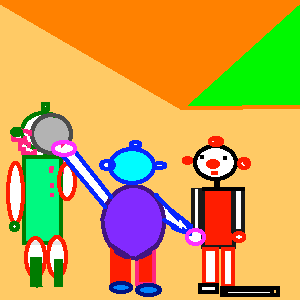"A prominent upper lip is a sign of power and confidence" ~ Jonathan Bartlett
When they let the light in Iskandor found that she could see behind the faces of the surrounding crowd of technicians.
Unsurprised she proceeded to explain to them exactly what it was that made them so who they were.
She watched as they processed her words; dispersing with expressions of discomfort.
“You are an Empath” said the doctor, smiling, and Iskandor felt his pity and Iskandor felt the his pride but she could not find a place to process that information.
When they let the light in Iskandor found herself unable to view her own hinterland; as if her outward attention were a current that allowed nothing to flow in the opposite direction.
When left alone on the white room she lost all sense of the world, hearing only the echoes of the doctor’s life; his hopes and dreams.
In her mind she could see the glass jar that sat on the doctor’s desk. She did not find this to be strange, even though her body had never left the white room.
The glass jar contained her until the doctor returned.
In the white room the doctor asked Iskandor if she could remember what she was.
Iskandor observed that the constant feeling of disappointment experienced by the doctor stemmed not, as the doctor so firmly believed, from the incompetence of others, but rather from the doctor’s own inability to accept, and act upon, criticism.
Alone in the white room Iskandor found that the glass jar on the doctor’s desk contained a small, self contained world; a world held in a delicate balance of plant life, light, decay and moisture.
Iskandor rested there, for in this perfect world there was no noise; no people; no ambition but the need to survive.
In the white room the doctor told Iskandor that she was a very special person and that her powers, with the doctor’s guidance, would change the world.
Iskandor observed that the doctor’s ambitions were not, as he believed, guided by altruism, but rather fuelled by the arrogance of one who believes that he can change the world.
Alone in the white room Iskandor noticed that the glass jar reflected light from a full moon. Unable to resist she was drawn up on the rays of silver light and found herself in a hush and calm more profound that that contained within the glass jar; a place where not even the air could touch her.
The moon spoke of isolation and subservience to unfathomable laws.
The moon called her “Sister”
In the white room Iskandor told the silent doctor that the reason he, the doctor, was unable to achieve his desires was his persisted in believing that he could define the world around him with words and that he could twist and shape those words to fit his own view of the world.
When they took the light away Iskandor had passed beyond the realm of light; she had taken advice from the planets; she had argued with the sun; she had answered questions posed by collapsing stars and infinite expanding universes; she had become.
Unsurprised she proceeded to explain to them exactly what it was that made them so who they were.
She watched as they processed her words; dispersing with expressions of discomfort.
“You are an Empath” said the doctor, smiling, and Iskandor felt his pity and Iskandor felt the his pride but she could not find a place to process that information.
When they let the light in Iskandor found herself unable to view her own hinterland; as if her outward attention were a current that allowed nothing to flow in the opposite direction.
When left alone on the white room she lost all sense of the world, hearing only the echoes of the doctor’s life; his hopes and dreams.
In her mind she could see the glass jar that sat on the doctor’s desk. She did not find this to be strange, even though her body had never left the white room.
The glass jar contained her until the doctor returned.
In the white room the doctor asked Iskandor if she could remember what she was.
Iskandor observed that the constant feeling of disappointment experienced by the doctor stemmed not, as the doctor so firmly believed, from the incompetence of others, but rather from the doctor’s own inability to accept, and act upon, criticism.
Alone in the white room Iskandor found that the glass jar on the doctor’s desk contained a small, self contained world; a world held in a delicate balance of plant life, light, decay and moisture.
Iskandor rested there, for in this perfect world there was no noise; no people; no ambition but the need to survive.
In the white room the doctor told Iskandor that she was a very special person and that her powers, with the doctor’s guidance, would change the world.
Iskandor observed that the doctor’s ambitions were not, as he believed, guided by altruism, but rather fuelled by the arrogance of one who believes that he can change the world.
Alone in the white room Iskandor noticed that the glass jar reflected light from a full moon. Unable to resist she was drawn up on the rays of silver light and found herself in a hush and calm more profound that that contained within the glass jar; a place where not even the air could touch her.
The moon spoke of isolation and subservience to unfathomable laws.
The moon called her “Sister”
In the white room Iskandor told the silent doctor that the reason he, the doctor, was unable to achieve his desires was his persisted in believing that he could define the world around him with words and that he could twist and shape those words to fit his own view of the world.
When they took the light away Iskandor had passed beyond the realm of light; she had taken advice from the planets; she had argued with the sun; she had answered questions posed by collapsing stars and infinite expanding universes; she had become.




















































